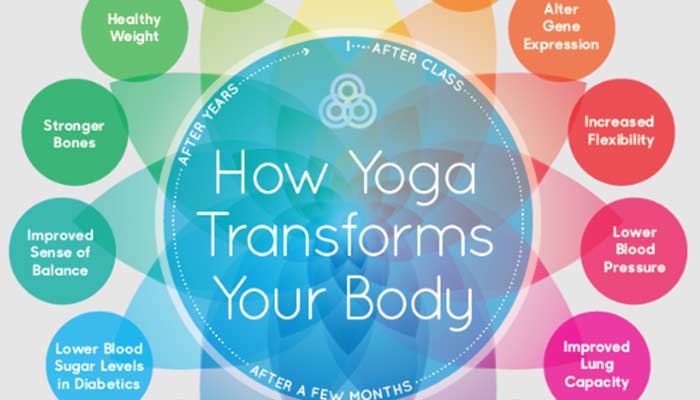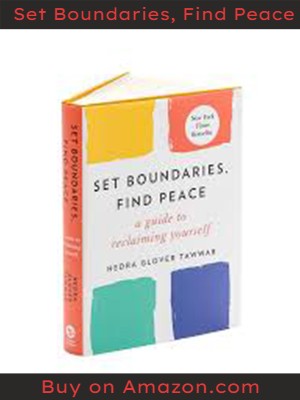
Stress has become an unavoidable component of modern life, manifesting as work pressures, social commitments, and personal issues. Yoga, an ancient practice that connects body, mind, and spirit, is a powerful tool for stress management and reduction. This guide examines how yoga might help you avoid stress and provides practical techniques for incorporating it into your everyday practice.
Recognizing Stress and Its Effects
The body’s natural reaction to perceived dangers or difficulties is stress. Chronic stress can have a detrimental effect on your physical and emotional well-being, yet temporary tension can inspire you to tackle challenges.
- Fatigue.
- Irritability.
- Difficulty in concentrating.
- Sleep disruptions.
- Physical problems like headaches or high blood pressure are typical signs of stress.
By encouraging relaxation, improving mindfulness, and reestablishing mental and physical equilibrium, yoga helps people cope with stress.
Why Does Yoga Help Reduce Stress?
Yoga offers a comprehensive method of stress management by fusing physical postures (asanas), breathing techniques (pranayama), and meditation (dhyana).
Health Benefits
Yoga releases physical stress that has been stored in the body by enhancing blood circulation and reducing muscle stiffness. Prolonged stress-induced aches can be alleviated by strengthening and stretching muscles during yoga poses.
Mental Advantages
By promoting awareness, yoga helps you stay in the moment and lessen anxiety about the past or the future. Yoga practice raises serotonin, the “feel-good” hormone and lowers cortisol, the main stress hormone.
Benefits to Emotions
Yoga’s meditative elements foster emotional resilience which enables you to handle situations with composure. Yoga helps you to become self-aware which makes it easier to recognize and control stressors.
How to Start Doing Yoga?
1. Clearly State Your Intentions
Choose your motivation for using yoga as a stress-reduction technique. Having a specific objective will keep you motivated, whether that aim is to improve your energy levels, feel calmer, or sleep better.
2. Establish a Special Area
Locate a peaceful space where you would like to do yoga without interruptions. This could be a calm area in a garden or a corner of your living room.
3. Collect the Required Equipment
- Yoga Mat
Offers support and cushioning.
- Comfortable Clothes
Provides freedom of movement.
- Props (optional)
For extra support, use blocks, belts, or bolsters.
4. Establish a Schedule
The secret is consistency. Start with 10 to 15 minutes a day and work your way up to longer periods as you feel more at ease.
Yoga Techniques that Work Well for Stress Reduction
Yoga Asanas (Poses) to Reduce Stress
Some yoga poses are especially good for reducing stress.
- Child’s Pose (Balasana)
This pose calms the nervous system and stretches the hips and lower back to promote relaxation. Place your forehead on the mat, extend your arms forward, and kneel on it. Take a deep breath.
- Cat-Cow Pose (Marjaryasana-Bitilasana)
Promotes a rhythmic breath flow and relieves spinal stress. While on your hands and knees, alternate between rounding and arching your back.
- Adho Mukha Svanasana
Adho Mukha Svanasana or downward-facing dog, improves blood flow to the brain, reducing tension and exhaustion. While maintaining your hands and feet on the floor, raise your hips toward the ceiling to create an inverted “V”.
- Corpse Pose (Savasana)
The ultimate post for relaxation that revitalizes the body and mind is the corpse pose (Savasana). Close your eyes while lying flat on your back with your arms by your sides. Relax and pay attention to your breathing.
Stress-Reduction Breathing Methods (Pranayama)
By controlling the autonomic nervous system, deep breathing helps the body transition from a stressed to a relaxed state.
- Nadi Shodhana
Nadi Shodhana or alternate nostril breathing balances energy and soothes the mind. Use your thumb to close your right nostril, take a breath through your left and then switch nostrils to release the breath.
- Sama Vritti
Sama Vritti or equal breathing encourages calmness and mental focus. Breathe in and out for the same number of counts, for counts each, for example.
- Ocean Breath
By focusing the mind and slowing the breath, Ocean Breath (Ujjayi) lowers anxiety. To produce a soft “ocean wave” sound, slightly tighten your throat while breathing through your nose.
Mindfulness and Meditation
Meditation is an effective stress reliever because it teaches the mind to remain in the present.
- Meditation with Guidance
You can follow a guided relaxation session with apps or videos on the internet.
- Meditation with Body Scan
Relax as you mentally go over every area of your body while lying down.
- Practicing Gratitude
To change your focus from stress to positivity during meditation, consider your blessings.
Tips for Improving Your Yoga Practice
1. Pay Attention to Your Body
Steer clear of forcing yourself into strained or uncomfortable poses. Yoga isn’t about competition but about connection.
2. Pay Attention to Your Breath
Yoga’s calming effects are enhanced and your mind remains focused when you breathe deeply and steadily.
3. Include Calm Music
Include calm music nature sounds or gentle instrumental music can enhance the feeling of peace.
4. Consistent Practice
Over time, even a few minutes a day can have a big impact.
5. Enroll in a Class
Group yoga classes particularly for beginners offer structure and support.
Including Yoga in Everyday Activities
Yoga can be used for more than just stress relief on the mat. You can incorporate its tenets into your everyday activities.
Start Your Day with Yoga
Yoga in the morning creates resilience against stress and sets a positive tone for the day.
Take Pauses for Yoga
Include brief yoga sessions in your workday such as breathing techniques or seated stretches.
Unwind at the End of the Day
To enhance the quality of your sleep, do some light yoga before bed.
Take Up Yoga Practices
For a holistic approach to well-being, combine yoga with mindfulness exercises, a healthy diet, and enough water.
Yoga is a powerful stress-reduction technique that benefits the body, mind, and soul in addition to being a physical workout. You can successfully manage stress and develop inner peace by embracing meditation, mindful breathing, and stress-relieving yoga poses.
The secret is to approach yoga consistently, patiently, and with an open mind, regardless of your level of experience. By doing this, you’ll prevent stress and promote a happier, healthier, and more peaceful existence.

Leave a Reply